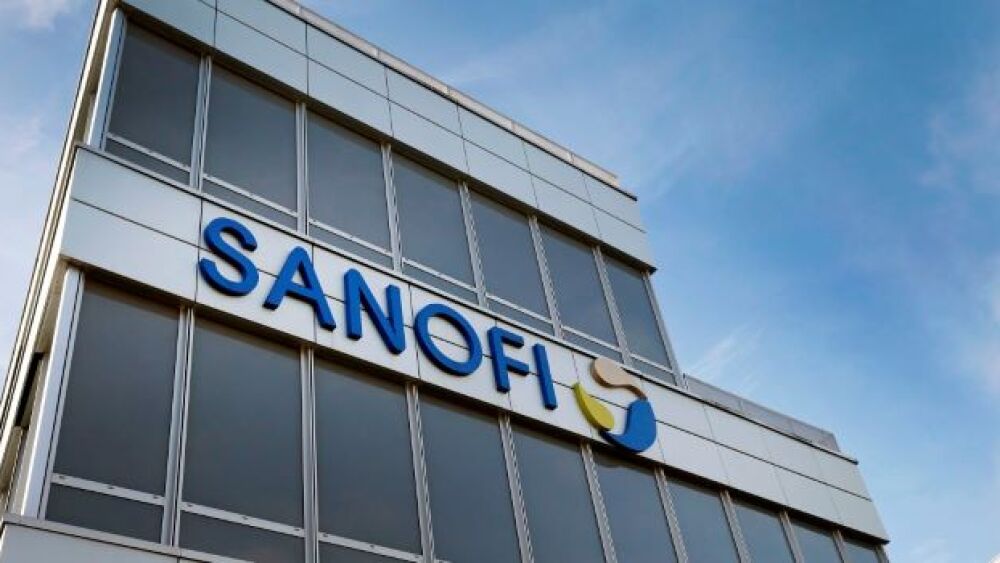Healthcare giant Sanofi and cancer-focused biotech company Seagen Inc. announced an exclusive collaboration agreement to develop antibody-drug conjugates (ADCs) for cancer treatments.
Courtesy of Chesnot/Getty Images
Healthcare giant Sanofi and cancer-focused biotech company Seagen Inc. announced an exclusive collaboration agreement with the goal of developing and commercializing antibody-drug conjugates (ADCs) for cancer treatments. ADCs are one of the leading technologies for anti-cancer drugs, and the deal is positioned to skyrocket profits for both companies.
Many see Seagen and Sanofi as a match made in heaven. For an ADC to be effective, it needs both a highly selective monoclonal antibody that targets a particular protein associated with cancer, as well as a conjugate that helps attach cancer drugs to the antibody. In this agreement, Sanofi has a promising monoclonal antibody technology for ADCs, and Seagen will supply the conjugation technology.
In the agreement, Sanofi and Seagen will co-fund all ADC development activities for up to three cancer targets. Any profits will be split equally. Sanofi will pay Seagen an undisclosed amount for each of the three cancer targets as they are announced. The companies announced in the press release that the first target has already been chosen.
Antibody-drug conjugates are valuable because they can target specific tumor proteins without damaging the rest of the body the way that traditional chemotherapy does. The global ADC market is expected to top $20.01 billion by 2028.
However, ADCs have proven to be a difficult target to hit. Even though the first ADC hit the market in 2000, there are currently only 12 ADCs that have been approved by the U.S. Food and Drug Administration, three of which are from Seagen (formerly known as Seattle Genetics).
Seagen is a seasoned leader in ADCs. The company made the second-ever approved ADC in 2011, a drug called Adcentris, and has been working on ADCs ever since.
Last month, Seagen scored a positive opinion from the Committee for Medicinal Products for Human Use (CHMP) of the European Medicines Agency (EMA) for its latest ADC, PADCEV, a treatment developed with Astellas Pharma for locally advanced or metastatic urothelial cancer. Seagen had previously received FDA approval and expanded indications for PADCEV in the US.
Sanofi also has a long history working with ADCs but has had less commercial success. The company began working on ADCs more than a decade ago in collaborations with Immunogen.
In 2015, Sanofi terminated a collaboration with Immunogen on SAR3419, an ADC for non-Hodgkin’s Lymphoma. The move tanked Sanofi’s stocks, chopping share values from $10.73 to $5.77 at the time.
Development on another drug, SAR566658, an ADC for triple-negative breast cancer, was stopped in 2018.
The latest development between Sanofi and Immunogen is SAR408701, an ADC for lung cancer and other CEACAM-expressing solid tumors that they have been working on since at least 2017. SAR408701 has been undergoing Phase III clinical trials, and data was presented at the 2020 American Society of Clinical Oncology (ASCO) Virtual Scientific Program.
Sanofi and Seagen are optimistic they can skyrocket development for more ADCs.
“We are excited to be working with Sanofi, a global biopharmaceutical leader, to identify new ways to potentially address unmet medical needs of cancer patients,” said Clay Siegall, Ph.D., president and CEO of Seagen. “Jointly developing novel ADCs by combining antibodies from Sanofi with Seagen’s proprietary ADC technology, aligns with our strategic priorities to expand the global potential of our pipeline with new first- or best-in-class programs.”





